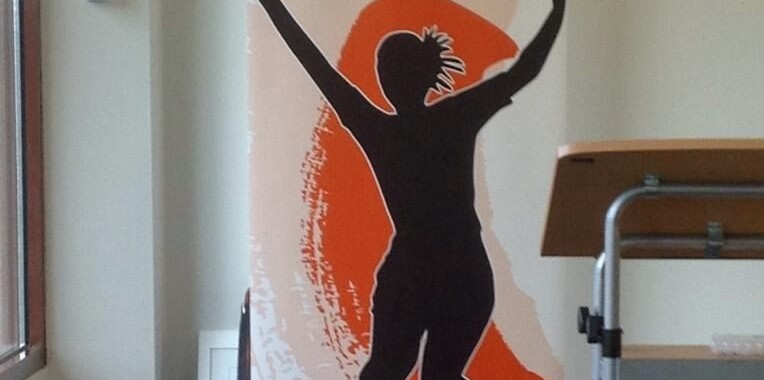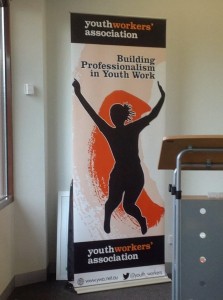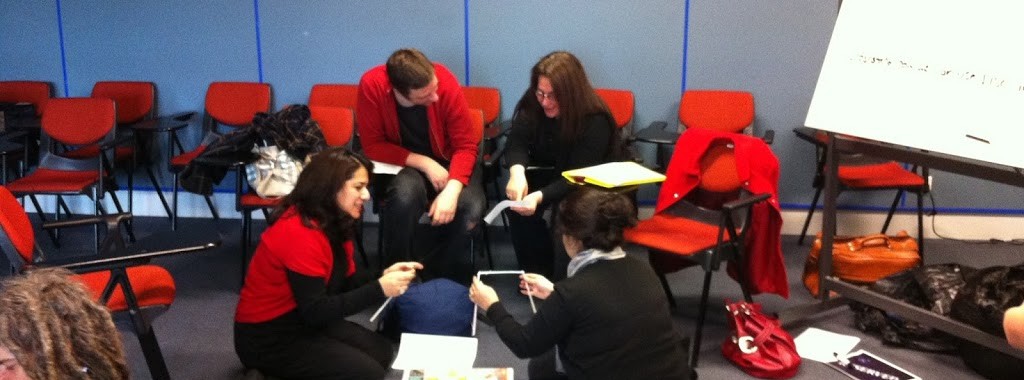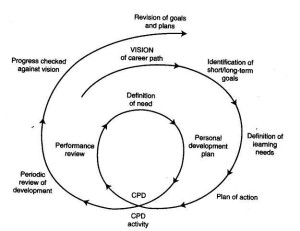Tag Archives: Professional Association
Is the professionalisation of our sector destroying the very foundation of youth work?
Thoughts on professionalisation
Over the last couple of days I have been re-listening to some of my favourite podcasts from c2ypodcast. Two in particular grabbed my attention as the guests spoke about the failure of the professionalisation movement in light of youth work core principles. We have stated a number of times on this blog that the professionalisation debate is lacking and unhelpful at best. We believe that qualifications and metrics don’t make a professional… it takes passion, calling and a whole lot of work.
 First up was Professor Dana Fusco who in discussing her amazing work “Advancing Youth Work: Current Trends, Critical Questions” spoke of the threat that certification of youth workers holds for youth work. The research for other professions appears to show that certification and professionalisation of other professions has not led to the recognition which we as youth workers are seeking. Dana’s discussion led me to think that the striving to become more professional in the human services sector has led to a watering down of youth work principles and practice wisdom.
First up was Professor Dana Fusco who in discussing her amazing work “Advancing Youth Work: Current Trends, Critical Questions” spoke of the threat that certification of youth workers holds for youth work. The research for other professions appears to show that certification and professionalisation of other professions has not led to the recognition which we as youth workers are seeking. Dana’s discussion led me to think that the striving to become more professional in the human services sector has led to a watering down of youth work principles and practice wisdom.
The second conversation was with an elder statesman in the field of youth work, Dr. Gerry Fewster. Gerry spoke of how insidious and easy it is for us to fall into the trap of practicing just like other human services professions such as psychology or social work in a world which waters down our practice as youth workers. That our uniqueness and ability to work with young people in a fluid way is compromised by blindly following into the mire of professionalisation.
Neither of these professionals believe that youth workers should be less than highly professional. What they do argue is that by limiting the scope and practice of youth workers through managerialism and metrics whilst seeking to gain a better reputation is ludicrous.
Lets be more professional every day, but let us never give up that which makes us unique.
Leave us a comment below or post a comment on Facebook and Twitter.
If you haven’t yet, sign up for our newsletter to find out all the goings on at Ultimate Youth Worker.
Developing a professional youth sector is harder than we first thought.
Is youth work suffering the death of a thousand cuts?
You can also leave us a comment below or post a comment on facebook and twitter.
If you haven’t yet, sign up for our newsletter to find out all the goings on at Ultimate Youth Worker. (Sign up here)
Youth worker education: The time for change is nigh.
Developing the leaders of the future: youth work qualifications aren’t enough!
 |
| Youth workers are looking for leaders in the field. |
-
Focused on effective results not efficient KPI’s.
-
Advocates for sector wide reforms including; better funding, focus on holistic interventions and staff support.
-
Developers of new research and practice literature which brings a youth work specific body of work to academia.
-
A core focus on our clients need, not our funding bodies “requirements”.
-
The ability to inspire the next generation of youth workers to expand the profession.
-
The wisdom to change with the times and not follow blindly other human service professions
-
A focus on character rather than qualifications when recruiting new staff.
-
A recognition of the role of youth workers by broader society
Leave us a comment below or post a comment on facebook and twitter.
If you haven’t yet, sign up for our newsletter to find out all the goings on at Ultimate Youth Worker.
Do you have a code of ethics???
What will youth work look like in 2013?
Today I am stoked to continue our series with a guest post from one of the worlds most well known youth work professors. In this series we have heard from Shae and Stephen Pepper from youthworkinit.com and will continue to hear from some of the leading minds in youth work from throughout the world culminating in early 2013.
Today’s Guest Post is written by one of New York’s finest, Professor Dana Fusco. In over 20 years as a lecturer in youth work she has shaped the argument for youth services in the United States encompassing areas such as reflective practice, after school services and youth work in interdisciplinary teams. Dana has a BA in Psychology from SUNY at New Paltz and a Phd in Educational Psychology from CUNY Graduate Center. She also runs the facebook group Advancing Youth Work: Current Trends, Critical Questions.
So Dana, what will youth work look like in 2013???
Dana Fusco, Professor, City University of New York, York College, United States
In the United States, youth work is not a unified or singular practice; rather, it has been described, and still is, a family of practices (Baizerman, 1996[1]). That family provides, in the most ideal circumstance, a plethora of diverse opportunities for young people. What we, as youthwork practitioners hope is that the set of diverse experiences known as ‘youth work’ will help young people to live rich, healthy, and fulfilling lives now and into the future. Our praxis is grounded or contextualized in the actual, not theoretical, lives of young people; is responsive to their lived experiences, their hopes, their aspirations and dreams; and proclaims a participatory and democratic approach that supports youth voice and agency as a part of community engagement.
In the places where youth work looks like this in 2012, I suspect it will continue to do so in 2013. That said, there are some trends on the horizon that potentially put the family of youth work practices in jeopardy. If we think of youth work as a stew, then each practice is an important ingredient towards a ‘tasty’ and healthful creation. In the U.S., our stew seems a bit ‘soupy’ these days, with ‘critical’ and emancipatory forms of youth work being those most often removed or replaced. This trend was precipitated by several sociopolitical and economic factors, with the most direct consequence being the pressure for out-of-school, nonformal environments to link up to, connect with, and supplement school. The goal for those who hope to formalize out-of-school environment is that there is a collective impact towards meeting NCLB (No Child Left Behind) targets (standardized test scores in reading and math).
The trend of youth work moving towards formalized education began with the development of a billion dollar federal reserve for afterschool programs under the Clinton administration, known as 21st Century Community Learning grants. These grants had two contradictory consequences. On the one hand, they put into the public eye, the importance of afterschool environments, many of which at that time were the youth-club-in-community-center variety, and legitimized these spaces as critical for young people. On the flip side, those dollars came with “strings” to improve academic outcomes. Some community agencies with a strong history of local work with young people have maneuvered within the structure to work in participatory and emergent ways. Many have closed their doors. Those newer to the scene might be doing good educational and ‘youth development’ stuff after school, i.e., enrichment and project-based learning, but not youth work in the way we have known it.
This situation leaves us with two potential possibilities for the future of the field. First, we can name these afterschool practices as part of the family of youth work practice and accept them as such. Second, we can decide that this form of afterschool, which is geared towards ‘a priori’ academic outcomes, might be too predetermined and ritualistic to be considered youth work at all. If this is the case, we must not only define youth work by what it is not but by what it is – an emergent and relational form of workingwith young people that is community-based, participatory and responsive, or what I am now calling, critical youth work (CYW).
If we choose the second option it will be critical that we more clearly define the purpose and values of CYW. As I see it, CYW aims to co-create spaces with young people where they can lead and learn. In this formulation, youth work begins with young people’s concerns, interests, goals, and/or needs, and positions practitioners to construct a ‘use of self’ that creates a relational web of possibility. Then, in this conception of the future, it is the education of the youth worker that becomes increasingly pivotal.
In 2013, it is not only changes in youth work practice that we must attend to but also changes in youthworkeducation (YoEd) In the U.S. we have seen an explosion in YoEd within higher education, a 900% increase over the past four years with most of these framed as ‘youth development.’ Conversely, in the U.K. and Australia, longstanding youth work courses and degree programs have closed their doors including those found at Royal Melbourne Institute of Technology in Australia, University of Strathclyde in Glasgow, and Manchester University. While the reasons for such closures have been couched in economic and enrollment terms, one wonders why Youth Work/Youth Studies then and not Latin or philosophy, which equally might enroll under five students each year. The lack of understanding among higher education administration about community-based youth work is partly to blame. The title itself, youth work, leans towards the vocational, not the liberal arts. In 2013, it is hard to predict where those who want to study youth work and youth studies in these countries will go. If they go into existing, related disciplines, e.g., social work, then youth work will too likely become case management; if they go into education, then youth work will become para-teaching. With such potential outcomes, an international community of youth workers and youth work educators is needed whether in the form of an association or something else in order to work towards saving/reclaiming and re-thinking the discipline of youth work. I believe today it is in our international community that we have collective power and bargaining to legitimize the work and the body of knowledge that we have co-created as a viable area of study and practice for working with young people.
In 2013, this would be something to aim for!
[1] Baizerman M. (1996). Youth work on the street. Community’s moral compact with its young people. Childhood, 3, 157-165.
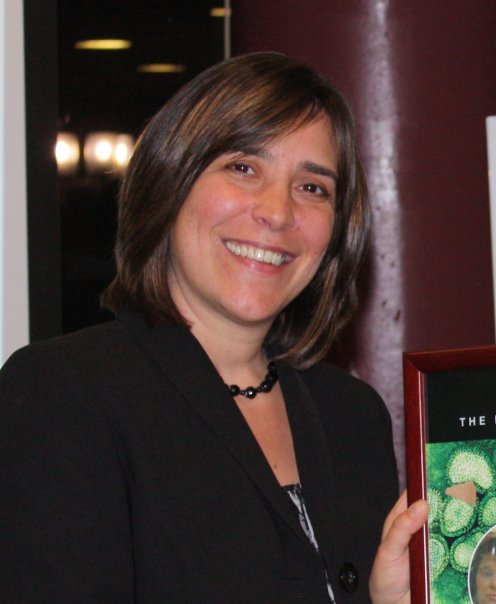
For more than 20 years, Dana Fusco’s research has focused on youth work as a practice and a profession and has led to increased national and international recognition. Recently she was the keynote speaker at the History of Youth Work conference in Minnesota and presented at the International Conference on Youth Work and Youth Studies in Glasgow. She serves on a national panel of leaders in youth work, the Next Generation Coalition, has authored dozens of peer-reviewed articles and produced the documentary, “When School Is Not Enough.” Professor in Teacher Education at York College, CUNY, She received her Ph.D. in Education Psychology from the CUNY Graduate Center.
Dana is The Editor of the path-breaking book Advancing Youth Work: Current Trends, Critical Questions, which brings together an international list of contributors to collectively articulate a vision for the field of youth work. This book is a must have and is one we would recommend you all get. We did. You can buy it here.
Why youth worker’s need to embrace technology for professional development
With new technology coming onto the market every minute you would hope youth worker’s were at least keeping up, sadly if anything we are falling behind at an ever increasing speed.
With new technology coming onto the market every minute you would hope youth worker’s were at least keeping up, sadly if anything we are falling behind at an ever increasing speed.
-
Our organisations. Organisational policies and procedures have become quite stringent as a knee-jerk reaction to possible legal and ethical issues which arise from the use of technology
-
Technology is changing so fast it is hard to keep up. If you do not devote time to seeing what is out there you can not keep up to date.
-
Technology costs money. I worked in an organisation two years ago that were still running windows ME on their computers which were ten years old!!!
-
It is not seen as a priority compared to face to face interactions with young people. Every day in Australia young people aged 15 and over spend approximately two and a half hours on the Internet. That is more than they spend with me as their youth worker!
So if it is important to our interactions with young people we should learn a bit about it right???
Here are a few reasons this can and should change.
-
Web based training is cheaper than other forms available. If and average worker is on $20 and hour and they attend a half day seminar that goes for 4 hours it costs the organisation $80 before they even get there. lets say it is in a major city and your organisation is in the outer suburbs, roughly an hour each way by transport is another $40 in lost productivity. Train tickets or petrol =$$$. Then there is the cost of the training. Is it catered, add more money. The average half day seminar in Melbourne currently goes for around $120.
- The equation looks a little like this:
- Conference attendance/lost productivity = $80
- Transport/lost productivity = $40
- Transport costs = $???
- Parking = $???
- Seminar cost = $120
- Catering = $???
- Total cost =$240+transport
- Same seminar done online =$200 (no transport costs, no catering etc.)
-
It is easier to attend. If your seminar is from 10am-2pm you can get to work at 9am and spend an hour catching up on emails. at 2pm when the seminar finishes you grab a bit to eat and are back at your desk by 2:30pm (and you had a snack or two at your desk while you were at the seminar). All you need is a computer with Internet access and a headset with a mic. Also you can attend training on the otherside of the world with great trainers just by getting online…No need for a $1000 plane ticket.
-
Online seminars provide handouts etc online. Whether you are at a webinar, listening to a podcast or watching a pre-recorded PowerPoint most providers also give you access so that you can go again and print/save documents for future reference.
-
Your boss won’t think you are playing hooky. From our experience we have found that many bosses struggle with sending staff to PD because they have issues with trusting that you will be there the whole time and actually pay attention. It is usually not because you have given them a reason but they are remembering what it was lie for them. If you are in your cube or office and you are visibly doing your training then there is no reason to doubt you.
So what does this mean for you as a youth worker?
Aaron

